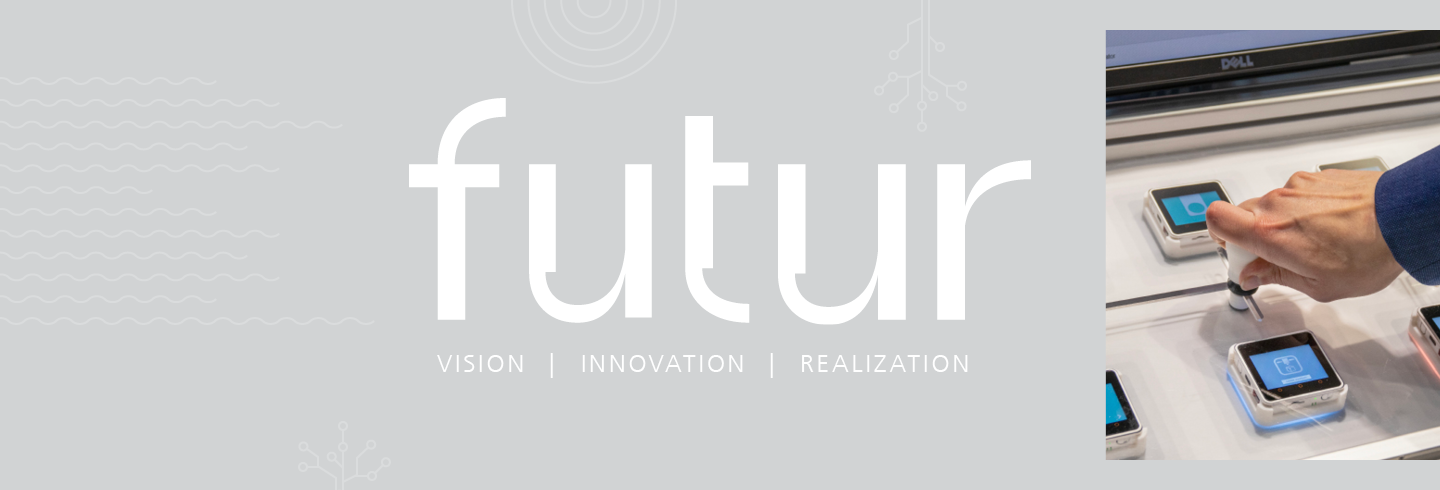Learning from Nature
Even though Fraunhofer institutes are known for their innovation, there is no need to reinvent the wheel every time. Sometimes, it makes more sense to apply well-established principles to new use cases. This is the fundamental idea behind the research project BioFusion 4.0, in which 13 partners from academia and industry, led by Fraunhofer IPK, have come together to develop solutions to bring sustainable biological transformation into industry. To make production more future-proof, digital, and eco-friendly, they collectively explore how biological principles can be adapted to industry and turned into practical solutions.
The project team has so far been achieving impressive results in addressing industrial use cases. These results highlight the crucial role of data in implementing sustainable and resource-efficient production. Interested parties had the chance to a glimpse of the specific solutions being developed within the project at Hannover Messe 2023 and the XVII International Production Technology Colloquium (PTK 2023), among others.
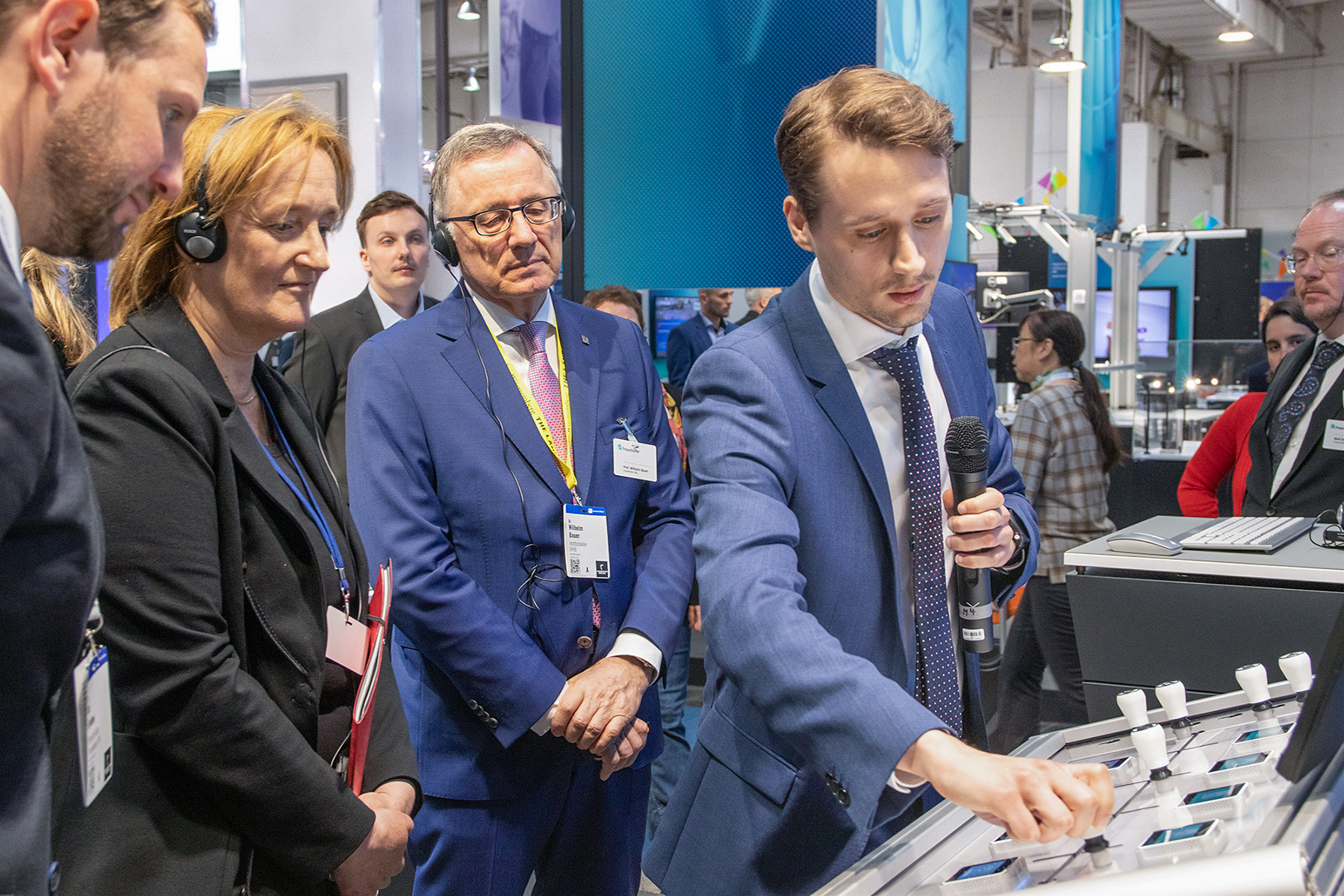
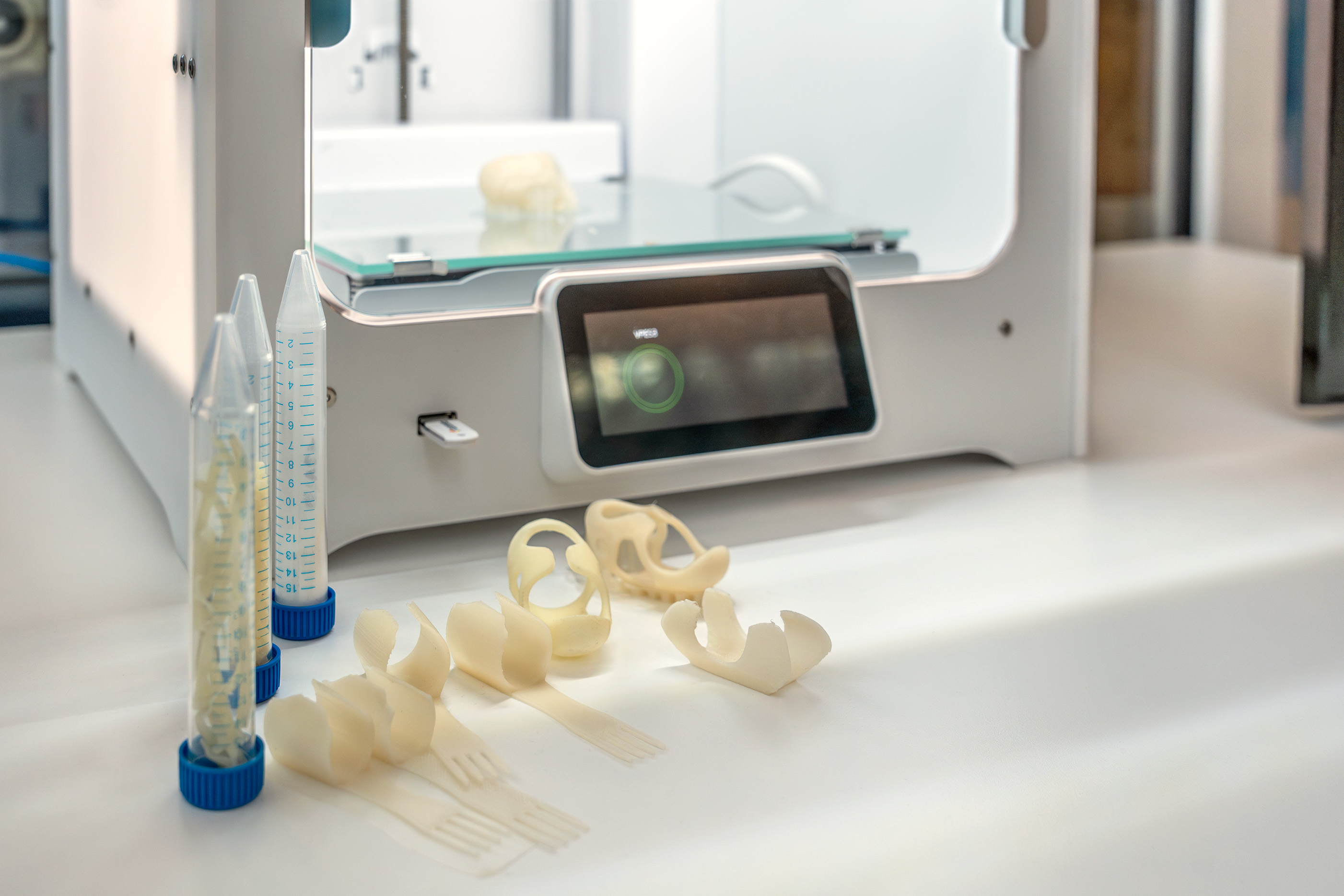
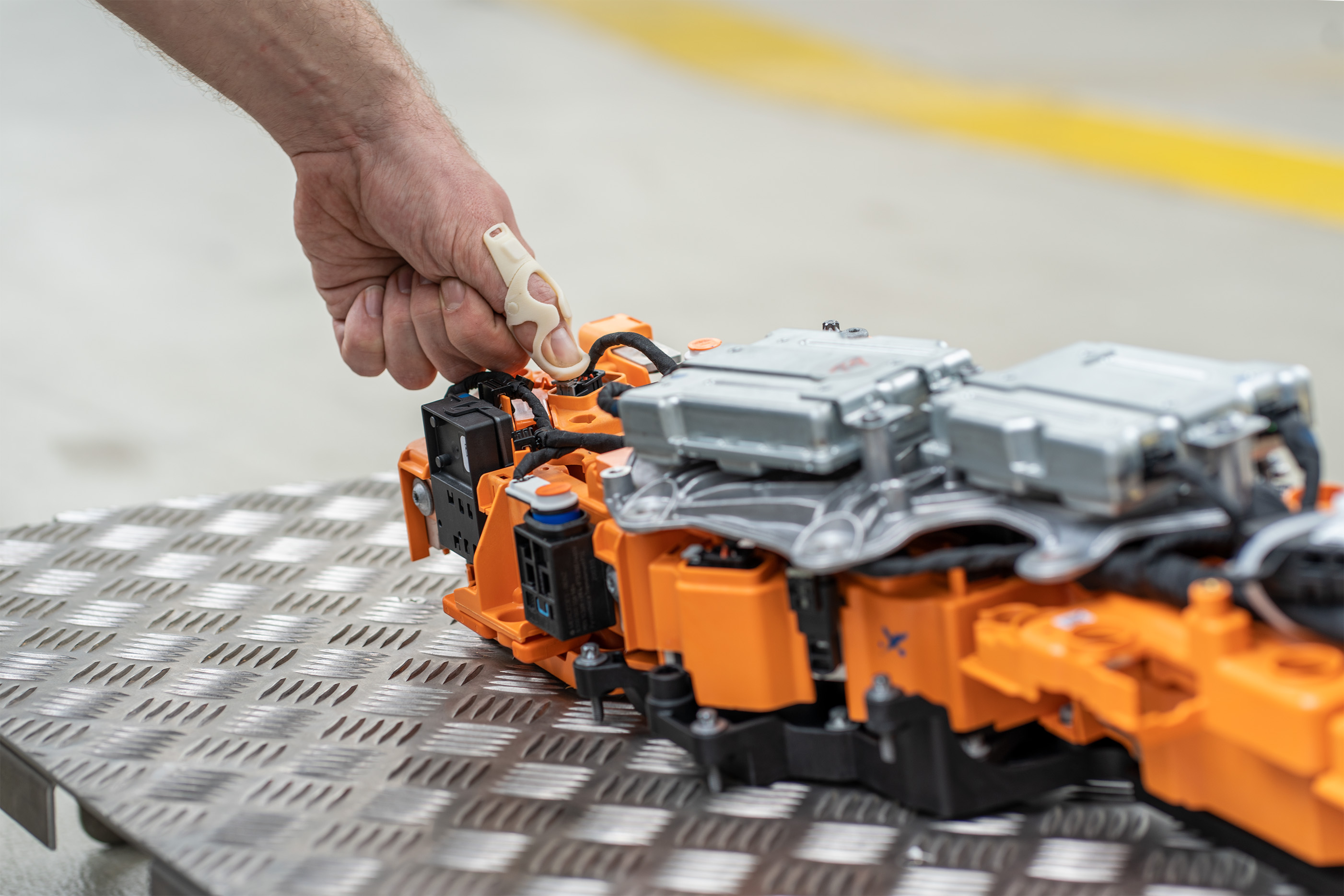
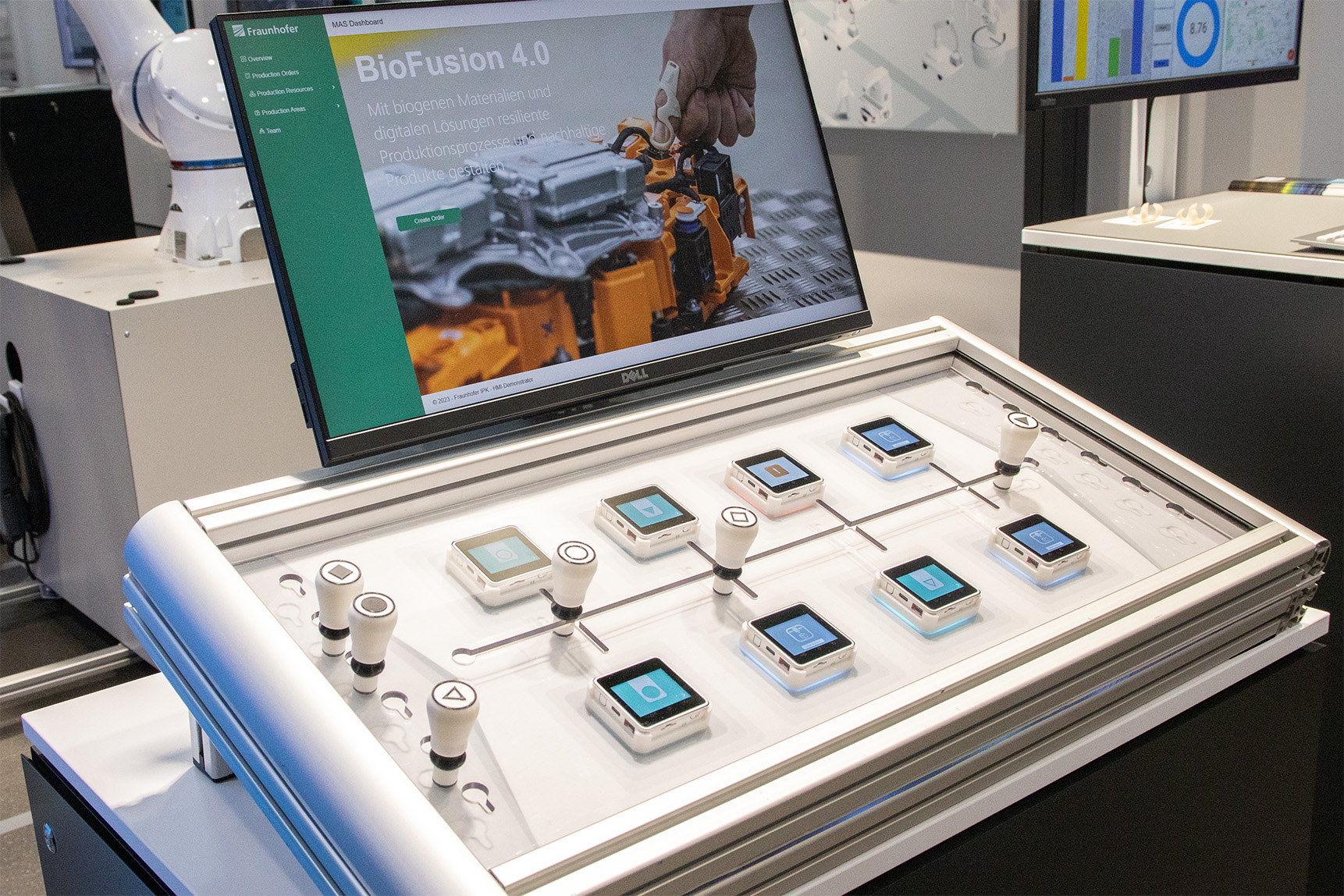
Autonomous and Connected
What can modern production learn from natural ecosystems? Ecosystems in nature, where different species of organisms, plants, and microorganisms interact and depend on each other, are highly complex. Similarly, in production, there are numerous actors: people, machines, IT systems. Their interactions play a crucial role in the functioning of the entire system. Following the concept of biological transformation, the BioFusion 4.0 team models these actors in the production process as autonomously acting agents, inspired by nature. They are intelligently networked, communicate with each other, negotiate tasks, and coordinate their actions. Bio-inspired multi-agent systems form the framework of sustainable production and adapt flexibly to changing requirements.
Researchers at Fraunhofer IPK are using demonstrators to show how manufacturing companies can become more flexible and resilient by means of such self-organized process handling. One of their demonstrators located at Fraunhofer IPK is illustrating the development, production, and life cycle of orthoses – orthopedic aids used, for example, to stabilize finger joints during the assembly of automotive components or for medical purposes. These orthoses can be 3D-printed from biogenic material and fully composted at the end of their life cycle.
The concept of decentralized production control is illustrated through an interactive factory layout simulating the processing of various product variants of said orthosis. The workstations, represented by small screens, are interconnected, forming a multi-agent system inspired by natural ecosystems, in which production tasks are automated and coordinated. Visitors to the demonstrator can see which workstation the system has designated to carry out the current task on the screens. Using levers symbolizing different product variants, they can approach the selected station. Users can also simulate the failure of individual workstations at the push of a button and experience how the multi-agent system promptly reacts and redistributes production tasks. The progress of incoming orders and the current operational state of workstations can be monitored on a dashboard. The demonstrator shows how companies can improve the adaptability and resource efficiency of their production processes through the biological principle of self-organization.
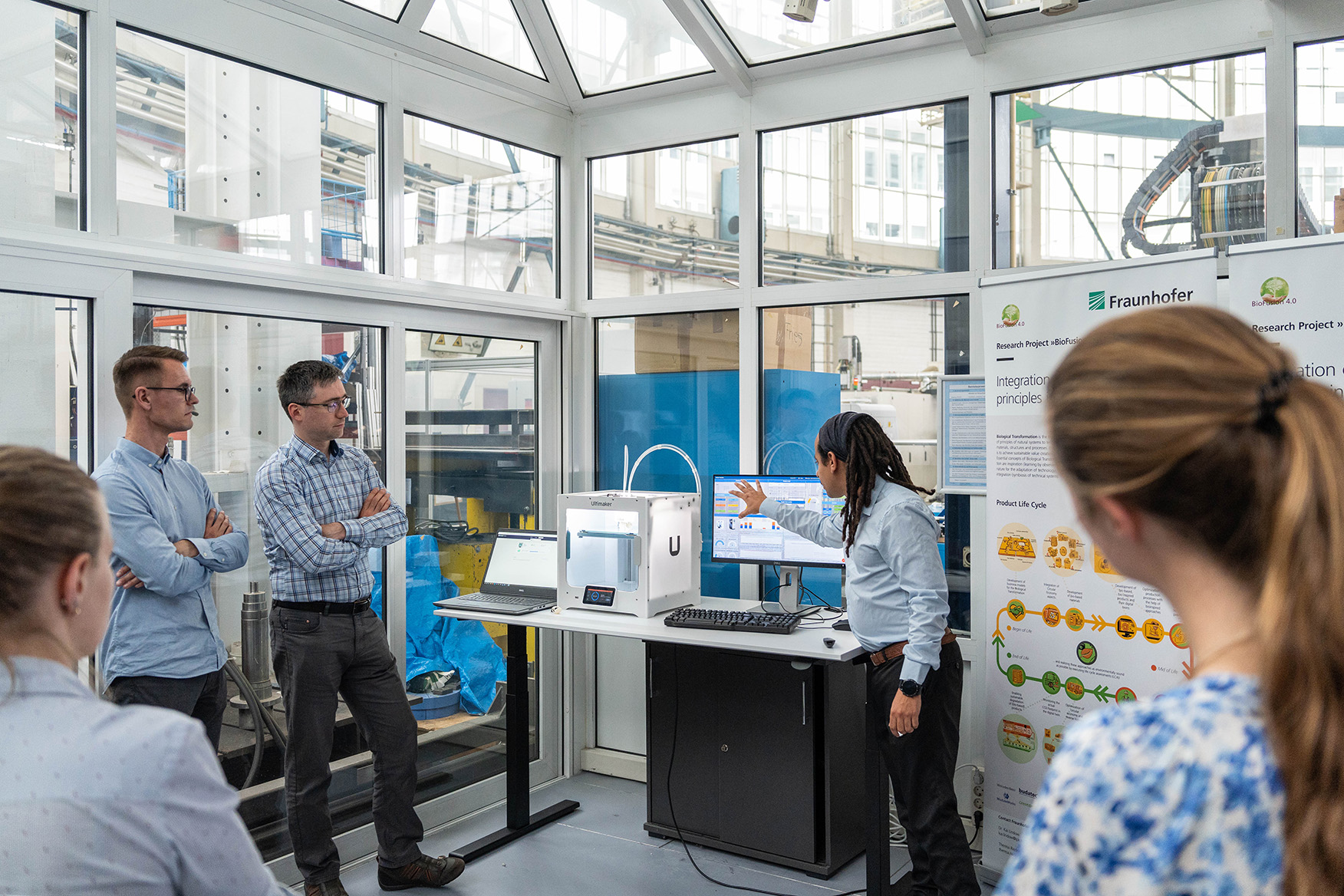
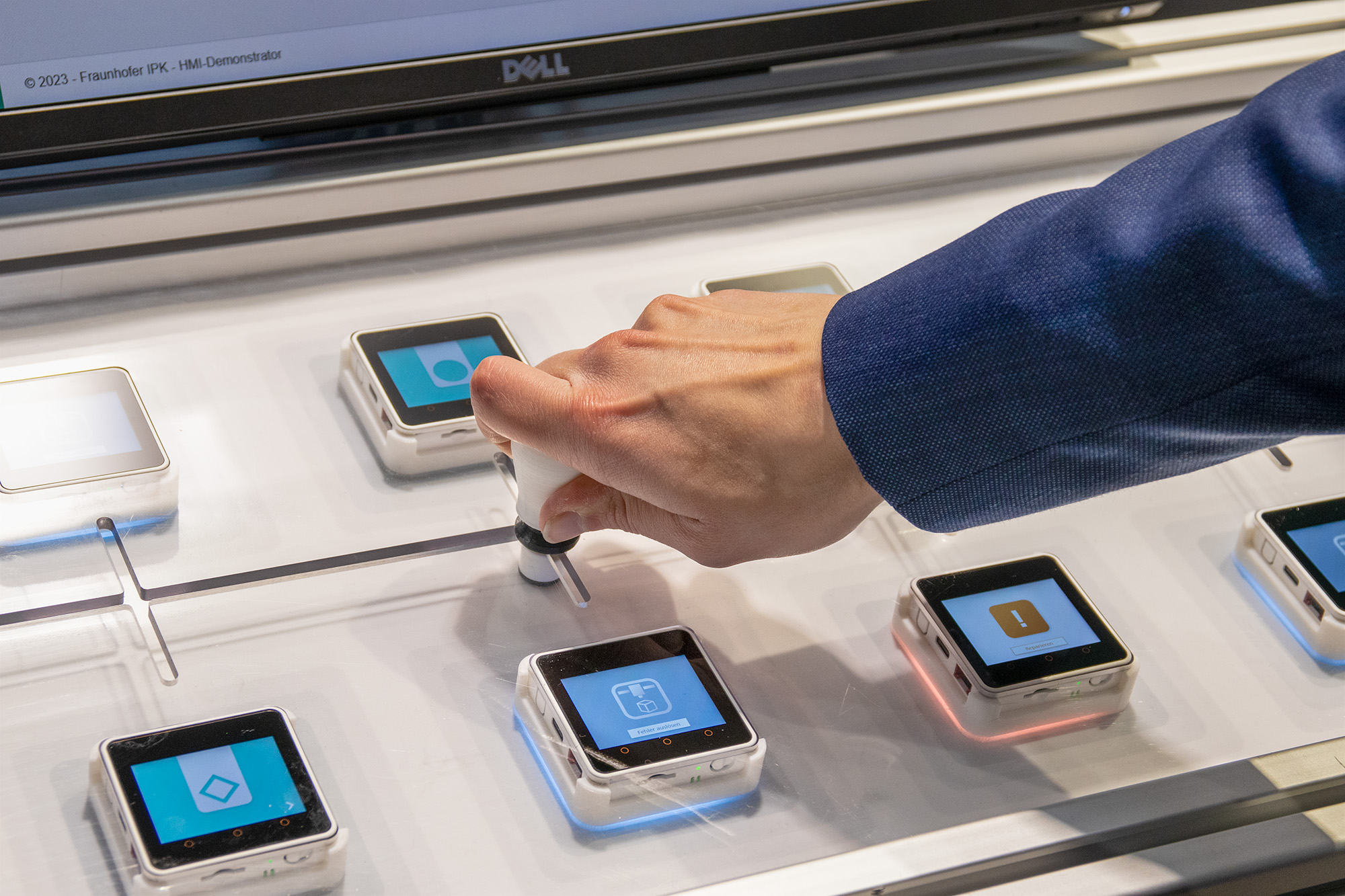
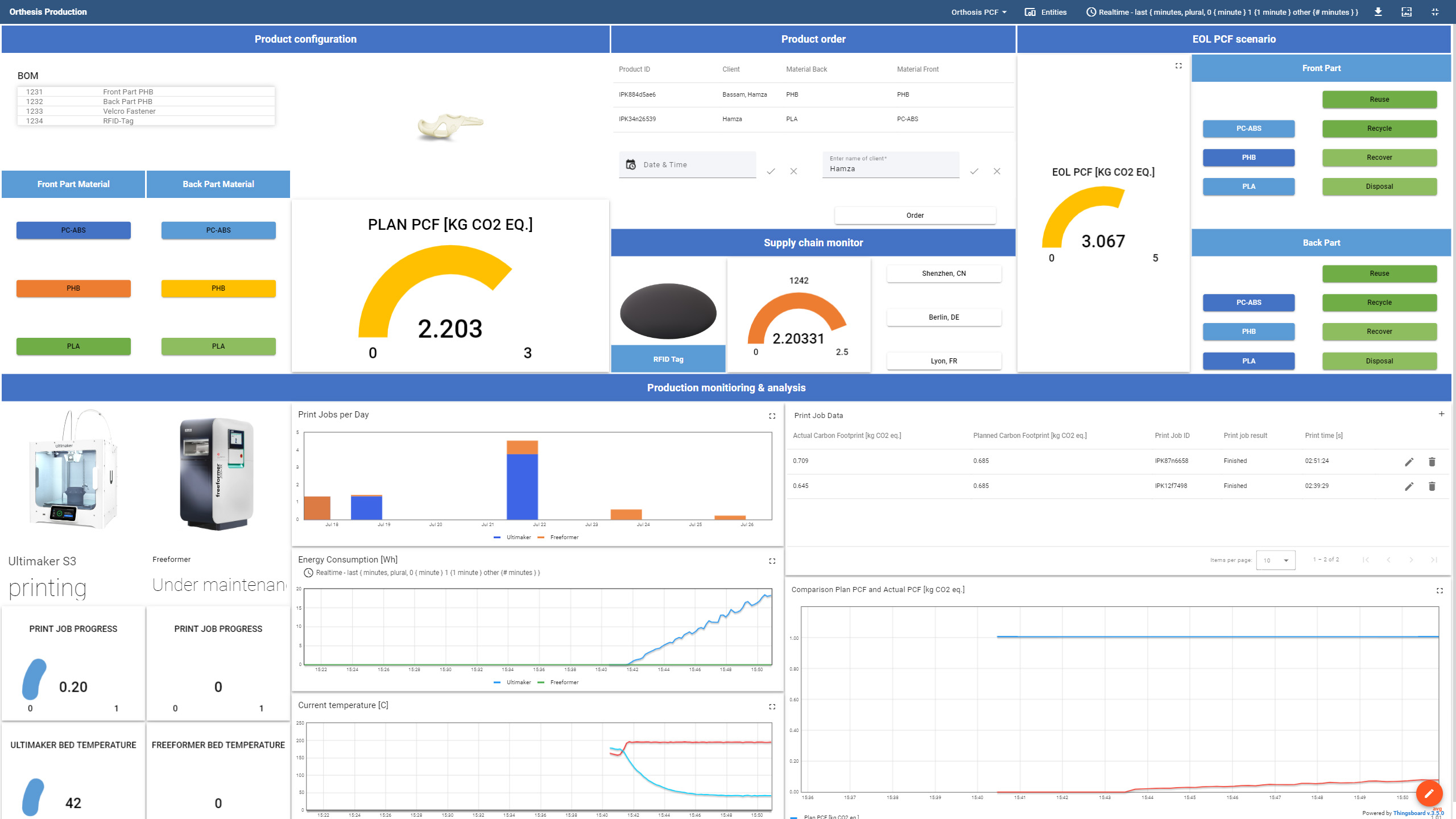
Creating Transparency with Digital Twins
Analogous to natural ecosystems, there are »product ecosystems« that involve not only physical products and their subcomponents but also digital services, the required infrastructure for their operation, as well as their interactions with other products. Successful natural ecosystems must continually demonstrate their resilience and optimize in harmony with their environment. This means they must respond promptly and self-optimize flexibly to changing environmental conditions. Similarly, digital twins can monitor »product ecosystems« and, based on specific information like real-time data, help them achieve optimized states. In the context of BioFusion 4.0, researchers at Fraunhofer IPK are investigating how the concept of digital twins can support product-specific calculation, tracking, and later optimization of the CO2 footprint over the entire life cycle.
In a dashboard, relevant data spanning the entire life cycle is represented, again using the example of the finger orthosis and its surrounding product ecosystem. The resulting digital twin integrates various sustainability-relevant data along the product life cycle. For instance, product development or production planning teams can directly view planning data like CAD models, bill of materials, or plan LCA data for different product variants. During production, use, and at the end of life stage, the dashboard displays real-time data such as energy consumption. By intelligently linking planning and real data, a real-time life cycle assessment can be calculated. Deviations and critical values are visible on the dashboard, allowing optimization measures to be derived and implemented on the physical product, following a feedback-to-design approach.
Considering the Entire Product Life Cycle
The digital twin for sustainability assessment and the self-organizing production process are just some examples of solutions for the biological transformation of industry. Until the official project end in 2024, researchers in the BioFusion 4.0 project will work on many more specific subprojects, the results of which will be showcased at the next Hannover Messe in 2024. The data obtained in the project will serve as a basis for potential business models of biological transformation, intelligent material recycling, bionic integration of connected production systems, bio-intelligent worker assistance systems, and additive manufacturing with biogenic and biodegradable polymers, all aimed at sustainable production in harmony with nature.
 Fraunhofer Institute for Production Systems and Design Technology
Fraunhofer Institute for Production Systems and Design Technology